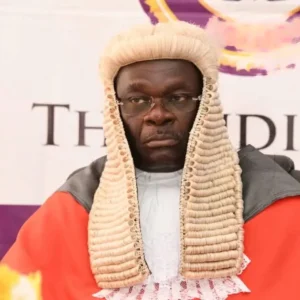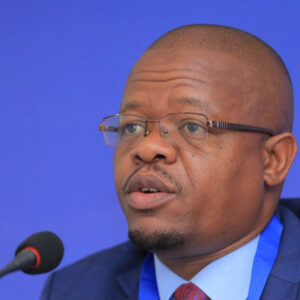In a move to strengthen tax transparency and combat offshore tax evasion, Uganda has officially launched the Automatic Exchange of Information (AEOI) framework, a global system for sharing financial account data between countries. The initiative, which went live on September 1, 2025, firmly places Uganda among nations committed to fairness and accountability in the global financial system.
According to Myra Iris Ochwo, the Assistant Commissioner for Tax Education at the Uganda Revenue Authority (URA), the milestone reflects Uganda’s “strategic reforms, legislative action, and technological innovation spanning more than a decade.” She emphasized that AEOI represents Uganda’s unwavering commitment to building a transparent and equitable tax system where “all income—domestic or foreign—is taxed fairly.”
Table of Contents:
A Decade of Steady Progress
Uganda’s journey toward AEOI did not happen overnight. It began in 2012, when the country joined the Global Forum on Transparency and Exchange of Information for Tax Purposes, a body under the Organisation for Economic Co-operation and Development (OECD). The forum promotes international cooperation on tax issues and transparency across jurisdictions.
In 2016, Uganda took a major step by ratifying the Convention on Mutual Administrative Assistance in Tax Matters (MAAC), a multilateral agreement enabling countries to exchange tax information on request. This agreement laid the foundation for future reforms in cross-border taxation and helped the URA build institutional capacity for data-driven tax administration.
By 2021, Uganda had officially committed to implementing AEOI, joining over 120 jurisdictions that agreed to share financial account data annually under the Common Reporting Standard (CRS)—a framework developed by the OECD to standardize global tax transparency.
To formalize this commitment, Uganda enacted the MAAC (Implementation) Act, which took effect on July 1, 2023, establishing the domestic legal framework for AEOI and clearly defining the responsibilities of Reporting Financial Institutions (RFIs).
How AEOI Works
At its core, the AEOI is designed to enable the systematic and periodic exchange of financial account information between the source country (where income is earned) and the residence country (where the taxpayer is liable for tax). This process allows governments to detect hidden wealth, uncover tax evasion, and ensure that citizens pay taxes in line with their actual global income.
The data shared typically includes dividends, interest, royalties, salaries, and pensions. Under Uganda’s Income Tax Act (Cap 340), gross income covers earnings from all geographical sources. Failure to declare such income attracts penalties and legal consequences.
Under the AEOI framework, RFIs in Uganda are mandated to conduct due diligence to establish the tax residency of account holders, collect self-certifications from all clients, review existing accounts for non-resident status, and submit relevant financial data to URA by May 31 each year.
This information is then securely transmitted to more than 127 partner jurisdictions that have also adopted the AEOI standard. Through this mechanism, Uganda can now track and identify offshore assets, foreign accounts, and undeclared income belonging to Ugandan residents.
A Commitment to Fairness and Equity
Commissioner General John Musinguzi described the AEOI launch ceremony at URA Tower in Nakawa as “a declaration of our resolve to eliminate undeclared offshore assets and income.” He explained that the framework “levels the playing field, ensuring compliant taxpayers are no longer disadvantaged by those who conceal wealth abroad.”
According to Musinguzi, AEOI will not only improve compliance but also strengthen trust between taxpayers and government. “It sends a strong message that Uganda is committed to integrity, fairness, and equity in its tax system,” he said.
Ochwo echoed this view, noting that the initiative represents “a new chapter in Uganda’s fiscal accountability,” where URA leverages technology and international cooperation to close the gaps exploited by illicit financial actors.
Economic and Technological Significance
Uganda’s implementation of the AEOI system comes at a critical time when the country’s tax-to-GDP ratio stands at 13.8%, below the Sub-Saharan Africa average of around 15%. With limited revenue relative to its growing population and public expenditure, Uganda faces pressure to mobilize more domestic resources without overburdening compliant taxpayers.
According to the United Nations Conference on Trade and Development (UNCTAD), Africa loses approximately $88.6 billion annually through illicit financial flows—resources that could otherwise fund infrastructure, education, healthcare, and social development. By joining the global AEOI network, Uganda positions itself to recover part of this lost wealth and reinvest it in national priorities.
The URA’s IT and Innovation Department also played a key role in the development of the AEOI platform. Rather than outsourcing the system, URA built it in-house, saving millions in procurement costs and ensuring full control over cybersecurity and data integrity. The platform’s design adheres to the OECD’s confidentiality and data safeguard standards, which Uganda successfully passed in December 2024.
The Commissioner for IT and Innovation highlighted that data protection is central to the AEOI project, given the sensitivity of financial information being exchanged internationally. “Robust cybersecurity measures have been put in place to protect both taxpayers and the integrity of the system,” he said.
Why AEOI Matters
Experts argue that AEOI could become one of Uganda’s most transformative tax reforms in decades. By automating the flow of information between tax authorities across borders, it eliminates traditional barriers that have enabled money laundering, profit shifting, and aggressive tax avoidance.
Ochwo pointed out that AEOI strengthens URA’s ability to detect hidden income, expand the taxpayer register, and promote fairness. “This initiative aligns with Uganda’s broader strategy of improving tax compliance through digital transformation,” she added.
Beyond enforcement, AEOI also encourages voluntary compliance as taxpayers become aware that undisclosed offshore accounts are increasingly difficult to hide. It enhances international credibility, making Uganda a more attractive destination for legitimate investment while deterring illicit financial practices.
Regional Implications
Uganda’s success with AEOI could serve as a model for other African nations still in the preparatory stages of implementation. Countries such as Kenya, Ghana, and Nigeria are also moving toward similar frameworks, aiming to strengthen regional cooperation against tax evasion.
Analysts believe that if adopted widely across Africa, AEOI could significantly reduce capital flight and boost the continent’s collective bargaining power in global finance.
What Next?
As Uganda enters the era of automatic tax information exchange, the URA is expected to continue investing in data analytics, capacity building, and public education to maximize the benefits of this reform.
Ochwo noted that taxpayer awareness is crucial: “Many Ugandans still don’t realize that offshore accounts and foreign earnings are taxable under Ugandan law. The AEOI framework is not about punishment—it’s about fairness and ensuring everyone contributes their share to national development.”
Uganda’s AEOI journey demonstrates that with sustained commitment, strong leadership, and digital innovation, developing countries can take firm control of their fiscal destiny.
“This is not just a compliance milestone,” Commissioner Musinguzi said. “It is a declaration of Uganda’s determination to build a transparent, fair, and accountable economy where every shilling counts.”






